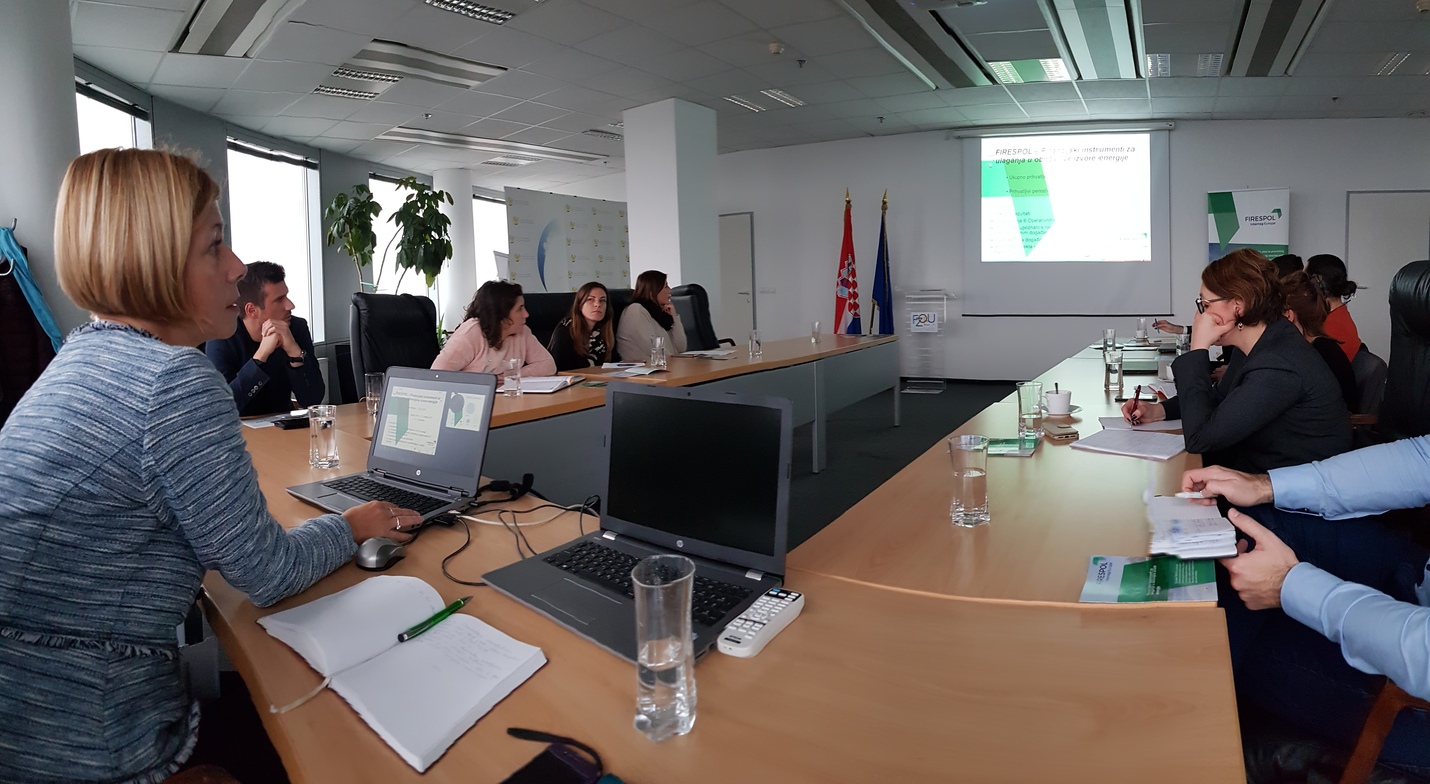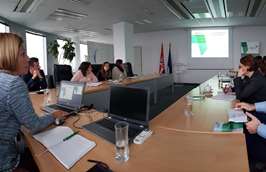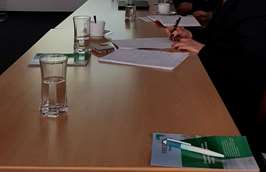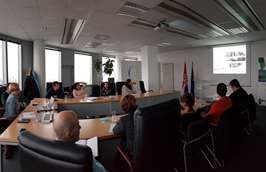26.11.2019.
During today’s consultations, Energy Crowdfunding for the towns and citizens by the Green Energy Cooperative was presented as the best practice example from Croatia, as well as the examples of energy communities and citizen initiatives for using renewable energy sources (RES) from Spain, Germany, Ireland, Poland, and Latvia, FIRESPOL partner countries.
“The crowdfunding model boils down to the fact that there is a concrete goal and project for which certain funding has to be raised. The innovation is in that the funding is raised through the online platform, where potential investors can join in the implementation of a certain project. The Križevci Solar Roofs project was financed through crowdfunding, which is the first utility-scale solar power plant that was financed from the citizens’ investment scheme. The object is a 30kW photovoltaic power plant installed on the roof of the building of the Križevci Development Centre and Technological Park, with direct on-site consumption. And without any state incentives and feed-in tariffs,” explained Zoran Kordić, manager of the Green Energy Cooperative (ZEZ) presenting this best practice example.
The project investment model operates on the principle where the citizens-investors can invest funds in the project by granting a 10-year loan to the Green Energy Cooperative with a 4.5% annual interest rate. With the funding from the loans, the Cooperative bought the solar power plant and installed it on the roof of the Križevci Development Centre and Technological Park. The Cooperative will be collecting the fee from the users of the power plant under a 10-year contract. The fee is fixed and equal to the amount of envisaged electricity savings achieved through the operation of the solar power plant. This fee will be used to return the loan with interest to all investors.
Kordić pointed out that there was great potential for these types of projects in Croatia, and that the citizens could manage energy generation themselves. He added: “In Croatia, there are more and more opportunities for innovative financing, where different partners and different funding is combined, where the town or energy community, or a cooperative, works together with electricity companies, thus creating partnerships that have already become mainstream in other countries. For example, Denmark has always allowed for some leeway in stimulating the projects managed by the citizens. An interesting piece of information according to the German Institute for Decentralised Energy Technologies is that the investment in RES projects implemented by the communities yields 8 to 10 times greater added value in the local communities.”
Participants in the consultations were the representatives from different Croatian institutions, ministries, companies, and banks, who all agreed it was very important to design the model for RES projects financing that would facilitate the activity of energy cooperatives, all with the aim of investment in sustainable projects that will have a positive social and environmental impact, and which will also stimulate the development of local communities.
The FIRESPOL project manager for Croatia, Suada Mustajbegović from the Fund, emphasised the importance of these consultations and the need to hold them in the future, so that all FIRESPOL stakeholders could contribute to potential financial solutions and models for RES projects development in the upcoming 2021 – 2027 programming period.
The project is co-financed by the European Union from the European Regional Development Fund under the Interreg Europe programme.









